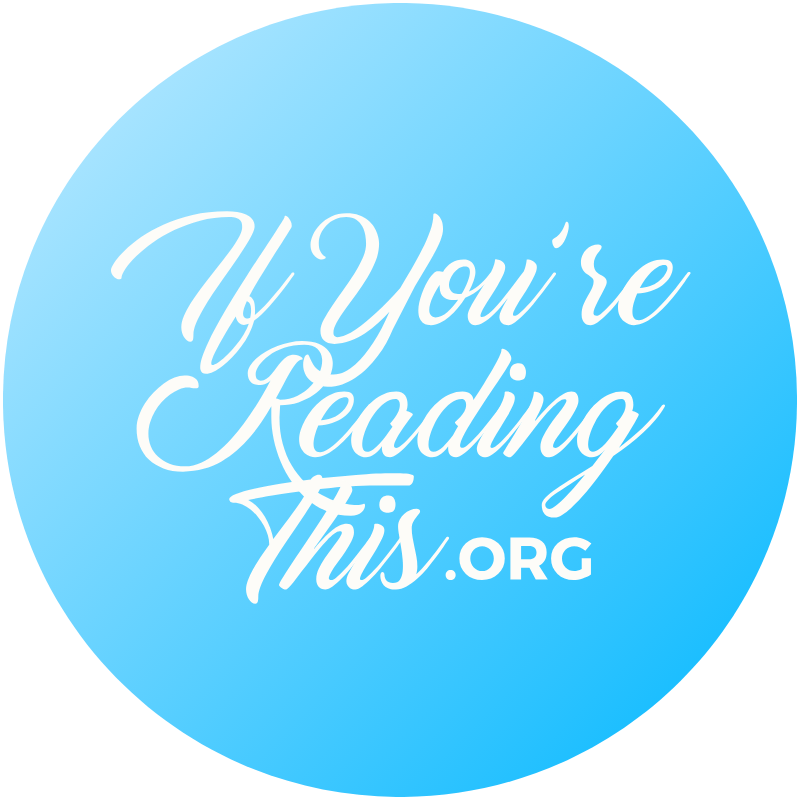Molly M.
Photography by Ally Szabo
Please note: In this letter, there is mention of disordered eating. If you think you may find this content triggering, please consider reading one of the other letters of IfYoureReadingThis.org, or prepare to access any support systems or resources you find helpful.
If you’re reading this, your struggles are valid.
I used to have a habit where I would count to 13 on a loop in my head all day long, telling myself if I didn’t get a task done in that interval, I would have to hurt myself. I would sprint up my stairs to make it to my room fast enough or count through my entire shower, putting in shampoo in under 13 seconds, washing it out in under 13 seconds, and so on. I didn’t know why it happened, but I knew I was afraid of it, and the more I tried to quiet my mind, the louder it got. I didn’t tell anyone for a long time because I didn’t want to scare them.
I have also struggled with anxiety my whole life. It really ramped up in college, and I was diagnosed with Generalized Anxiety Disorder (GAD) last year. Some days it would feel like everyone was staring at me as I walked on campus, or I would end up crying at parties for reasons I couldn’t articulate. Then most recently, the combo of my OCD tendencies, my anxiety, and quarantine led me to develop an obsessive and disordered relationship with food and exercise, which I’m honestly still working to fully understand and undo.
Even though I’ve had some really tough times mentally, I always knew someone else going through more, dealing with something more extreme. I saw peers go through debilitating mental illnesses and eating disorders, and for that reason, I believed that my personal and less severe struggles didn’t deserve attention… that I didn’t deserve help.
Through all the scary and worrisome thoughts going on in my head, I knew I was strong and always viewed myself as a support for others going through “worse.” I usually looked like I had everything together, so I would tell myself, “Obviously my struggles can’t be that big of a deal if I am able to live my life successfully and mask my internal issues well, right? So why should I get help?”
My mom had been encouraging me to try out medication for years. Sitting on our back patio together, as I watched her make dinner, when we talked on the phone during my first two years of college, she’d ask me, “If you can make yourself feel a little better and you have the resources to do it, why wouldn’t you? Or at least try?”
With that being said, I eventually started going to weekly therapy in the summer after my sophomore year of college and started medicine for my anxiety and OCD counting shortly after. And I am so glad I did. These days, life feels a lot lighter, my relationship with food and exercise is so much healthier, and I rarely find myself counting. This isn’t to say I don’t have my bad days and weeks with anxiety and counting flare-ups, because I most definitely do. But they come less often and feel less extreme when they do.
You may feel that you don’t deserve to want to get better, to vocalize your struggles, and to seek support. Just because your battles are not the same or as intense as another person’s does not invalidate them. A quote that I try to constantly remind myself of is this: “You live most of your life inside your head. Make sure it’s a nice place to be.”
Comparison is the thief of joy. But can also be the thief of you getting the help you deserve.
If you are reading this, your struggles are valid. Your emotions are valid. Your experiences are valid. You have every right to find the help, love, and support you deserve, no matter how “minor” the battles you are fighting may seem. Your life is yours, and you deserve to feel your best.
Molly M., Villanova University
Connect With Us
To follow IfYoureReadingThis at Villanova on Instagram, get in touch with our chapter, and learn about more resources available to Villanova students, visit our chapter’s homepage.
AUTHOR CONTACT
This author has opted to allow readers who resonate with their story to contact them. If you would like to speak to the author of this letter about their experience, please use the form below.

